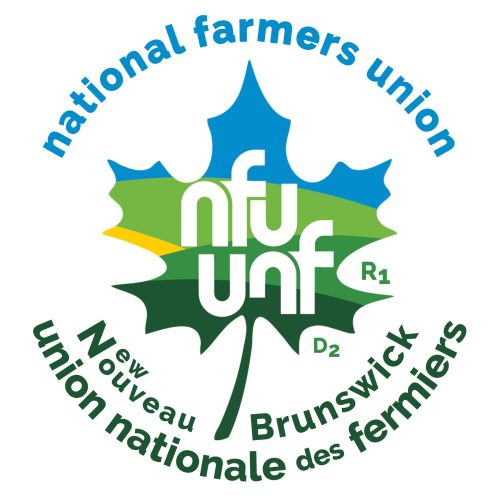by Katherine Aske, NFU-NB Communications and Membership Coordinator
***note: this commentary was submitted to the Telegraph Journal on August 29, 2016 and was reproduced in part or in whole in the Victoria Star and the Telegraph Journal***
NB now proudly boasts more than 40 farmers’ markets across the province. While working to create a map of these markets, the National Farmers Union in NB has had the great pleasure of visiting over 30 of them this summer.
Although some markets have been around for decades, many have sprung up in the past couple years through the hard work of community visionaries. These new markets are increasing consumer interest in building relationships with the people who grow their food.
Evelyn Fletcher, manager and founder of the Newcastle Farmers’ Market in Miramichi, describes their market as “the heart of the community”.
Markets like those in Bouctouche, Kingston, and Dieppe are flourishing. Their organisers have worked hard to maintain high numbers of producers, including new, young farmers who are finding a niche for themselves. Beyond farm products, markets feature live music, community breakfasts, the work of local artisans, and a delicious variety of food from many cultures.

The Queen Square Market in Saint John and the Shediac Park Market have both been such a success that they have led to large government investments in their sites. Rachelle Richard-Collette, lead planner for the Bouctouche market, has been busy this season calculating gross sales in order to present evidence of their market’s positive economic impact.
Farmers’ markets can play a key role in ensuring food security, particularly in communities such as Petitcodiac, which lost its only grocery store for six months last year. Laura DeGrace, founder of the Petitcodiac Farmers’ Market, says those without cars to drive to the next town over went hungry.
“The loss of the grocery story highlighted the food insecurity in our community, and made me realize the importance of initiatives such as our farmers’ market”, she said.
Some markets can be hard-pressed to find farm vendors, occasionally turning to vendors who sell products they do not grow themselves. While markets need farmers and their food to attract regular visitors, farmers need large numbers of visitors to make a day at the market worthwhile. With NB’s decline in population and family farms, this poses an ongoing dilemma for the smaller markets.

At the Newcastle Farmers’ Market in July, Kevin Arseneau of La Ferme Terre Partagée stood behind his stand laden with a wide variety of produce and was asked by a customer “when he would have vegetables in”. At markets, consumer education is a necessary element and success can be limited to traditional staples such as potatoes, carrots, and squash. Farmers who want to grow a wide diversity of crops are often interested in selling directly to customers through Community Supported Agriculture (CSA) weekly box programs. New farmer Jamie Reynolds of Highfield Farms sells at three markets but says he is looking forward to building a CSA program, which will allow him to grow what he likes and challenge consumers with different kinds of produce.
Food safety is the first priority of all farmers, as their entire business is built on providing quality food. Those who sell at markets have relationships with their customers, which only increases their dedication to a high standard of food safety. However, many markets have been at risk of losing farm vendors lately as a result of tightening provincial regulations dictating what can be sold.
For example, to sell meat at a farmers’ market, it must be slaughtered at a provincially-licenced abattoir. There are not enough abattoirs, and so small-scale meat producers who are hours from the closest location turn instead to alternative processing methods to remain viable. Some of these producers have sold their meat without issue at markets for years but are now being pushed out by inspectors.
Regulations are increasingly geared toward large producers. With higher registration fees and requirements for expensive equipment and facilities, profitability becomes a problem for small and medium businesses. NB needs to have scalable food safety regulations that protect the consumer with high product standards while recognizing and responding to the realities of different business sizes and their associated risks.
It is also vital that NB consumers and visitors increasingly turn to their local farmers’ markets for their food. To learn more about the markets in the province stay tuned for the launch of the map on buylocalnb.ca this fall and the printed maps which will be available at the markets and NB Tourism offices this spring.




